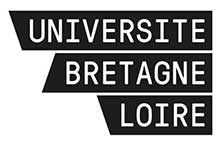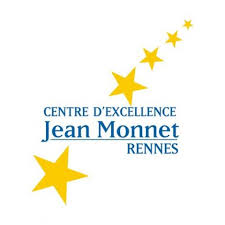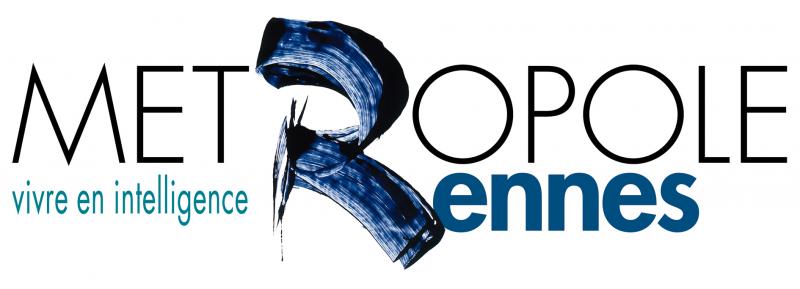Please find
HERE the conference schedule.
Among guest speakers : James K. Galbraith (Lloyd M. Bentsen, Jr. Chair in Government/Business Relations, University of Texas at Austin, USA), Michel Aglietta (CEPII, Université Paris X Nanterre), Laura Horn (Roskilde University, Danemark), Costas Lapavitsas (SOAS University of London), Catherine Mathieu (OFCE), Jacques Mazier (CEPN), Sabine Saurugger (Sciences Po Grenoble), Aurélie Trouvé (PRODIG – AgroParisTech)...
CALL FOR PAPERS (downloadable here)
The annual conference of the Association Française pour l’Economie Politique/French Association for Political Economy is a generalist conference that brings together a range of different approaches to economics and seeks to be a sounding board for those seeking to defend the need for pluralism of concepts, ideas and theoretical tools in economics. AFEP also aims to encourage interdisciplinary collaboration in the social sciences around economic issues.
Some 200 delegates who set great store by pluralistic debate around themes in political economy and socio-economics attend the AFEP conference every year
Accordingly, it is expected that a large number of papers addressing (but not necessarily confined to) the following themes will be submitted :
- the epistemology and sociology of political economy
- macroeconomic policy and theoretical debates in macroeconomics
- history of economic thought
- political economy and the development of public policies
- analysis of industrial and innovation policies
- the contributions of political economy to the question of work
- the contributions of regional/urban economics with regard to regional development/urban
- policies and geography
- the links between modeling and political economy
- disciplinary and methodological pluralism around political economy
- teaching and training in economics
- economics and the other social sciences
- economics and civil society
Submissions from social scientists other than economists (economic sociologists, management specialists, economic anthropologists, economic historians) and dealing with economic issues will be welcomed.
The AFEP Conference 2017 will be structured around a central theme:
Towards the disintegration of Europe ?
Contemplating Europe’s future
The ‘no’ vote in the UK’s June referendum on membership of the European Union was undoubtedly the consequence of a huge political gamble on the part of prime minister David Cameron – a gamble that he lost. Beyond that, however, it also reveals the failure of the European political sphere to foster widespread support among the people of Europe for a common project. Fervently advocated originally by Jean Monnet, the aim of this common project was to unite the citizens of Europe in order to limit economic and political competition between states, which could in extreme cases manifest itself in military conflicts. This major event further compounds the series of recent political and economic crises which, combined with the ongoing refugee crisis, could really put a brake on European integration. This is why the future of European integration will be at the heart of the 7th AFEP conference, to be held in Rennes in July 2017. Having attracted new candidates for membership over previous decades, the European Union may well in future be faced with new demands for withdrawal. This development obviously raises many questions for all the social sciences, and in particular for political economy.
To quote François Perroux (1974)1, ‘having gained in reach, Europe has lost in intensity’. As long ago as the 1970s, Perroux judged it necessary to call into question a European community whose main aim was the development of a competitive market. This principle did, after all, cause policymakers to disregard the fact that, in order to gain the people’s support, institutions had first to be put in place to facilitate the development of the tools required to control capitalism, to limit the various forms of inequality and thereby create a sense of belonging. In the absence of such tools, Perroux sensed there was a risk that the European space would lack cohesion. In order to construct the new Europe, it would be necessary to go beyond the nation state, politically, legally and economically. However, this transcending of the nation state seemed to François Perroux to have already failed.
This realisation that the project was problematic from the outset, since it was based on the notion that the construction of a European economy could precede that of a political, democratic and cultural Europe, is shared by many other commentators (such as, for example, Maurice Allais [1991]2, Joseph Stiglitz, Michel Aglietta). The governance of Europe is lacking in ‘democratic legitimacy’ to quote Michel Aglietta (2014)3 ; in his view, this makes the euro an ‘incomplete’ currency, The difficulty the eurozone has experienced in establishing an effective mode of political regulation can be understood through this prism. Over and above a precise diagnosis of the state of the European Union and also of the eurozone, this conference will provide an opportunity to examine the future of the European project. Are we heading ineluctably towards the ‘disintegration of Europe’ ? Or is it possible to breathe new life into the project and if so, by what means ?
Instead of the current ‘tutelary federalism’ (Dévoluy, 2014)4, should consideration be given to establishing some form of ‘federative planning’, which would make it possible to set EU member states new common goals, as Jean Monnet wished and François Perroux notably recommended ? There are, after all, many potentially worthwhile political objectives : establishing a social Europe, coordinating fiscal policies, developing an industrial policy to stimulate investment in the ecological transition and in R&D, etc.
Should more democratic sovereignty be transferred to the European level, while at the same time retaining a democratic process at national level, as Michel Aglietta proposes ? Is this feasible in the absence of any European constitutional authority ? Given the lack of any movement in this direction and for want of a genuinely federalist system, one alternative solution for the eurozone might be to establish a multiple-euro regime, which would offer a route out of the restrictive bias of economic policies by enabling countries to adjust parities within the eurozone (Mazier et Petit, 2013)5.
Should we abandon the euro ? This is the argument put forward by Frédéric Lordon (2014)6 and Cédric Durand (2013)7, who propose putting in place a plan B in order to prepare for just such an eventuality. Joseph Stiglitz (2016)8 himself, in his latest book, launches a virulent attack on the single currency, which he holds responsible for the difficulties of the European economies.
Projects aimed in particular at reducing inequalities between countries and - to compensate for the absence of that adjustment mechanism within the eurozone – between regions are certainly being funded from the European budget. However, the funding is not in any way equal to the task nor, more generally, is it sufficient to provide effective support for innovation and nonprice competitiveness policy. All these points raise institutional questions and it would therefore seem essential to a pertinent analysis of issues in political economy to have fresh light shed on them from the perspective of public law and political science.
The conference will provide an opportunity to compare and contrast different points of view on the future of the European Union and the eurozone, whether the aim is to propose a reform of these entities depending on the objectives to be specified or to challenge the radical questioning of those same entities (i.e. their hypothetical disappearance). The questions raised can be addressed in terms of the integration-disintegration dialectic and across all the dimensions that each point of view might encompass, whether they be economic, legal, sociological, financial or political.
There is a plan for Presses Universitaires de Rennes (PUR) to publish an edited book on the future of Europe that will include some of the papers presented on this theme. The academic committee will send a proposal to the authors after the conference.
1. François Perroux, « L’Europe fin de siècle », Économie appliquée, vol. XL, no 2, 1974, pp. 369-384.
2. Maurice Allais, L’Europe face à son avenir ; que faire ?, Robert Laffont / Clément Juglar, 1991, 309 p.
3. Michel Aglietta, Sortir de la crise et inventer l’avenir, Michalon Éditeur, coll. « Essai », 2014, 327 p.
4. Michel Dévoluy, Comprendre le débat européen. Petit guide à l’usage des citoyens qui ne croient plus à l’Europe, Points, coll. « Points Essais », 2014, 156 p.
5. Jacques Mazier et Pascal Petit, « In search of sustainable paths for the eurozone in the troubled post-2008 world », Cambridge Journal of Economics, vol. 37, no 3, 2013, pp. 513-532.
6. Frédéric Lordon, La malfaçon. Monnaie européenne et souveraineté démocratique, Les Liens qui libèrent,
2014
7. Cédric Durand (dir.), En finir avec l’Europe, La Fabrique Éditions, 2013.
8. Joseph E. Stiglitz, The Euro : And its Threat to the Future of Europe,Allen Lane, August 2016, 496 p.









